For our first three days of research, we are comparing the coral and fish community within three Ribbon Reefs. Ribbon Reefs form a chain of 10 individual reefs beginning to the north of Cairns and stretching close to 120 km to the east of Lizard Island. They are found from 50 -100 km offshore, along the outer edge of the Great Barrier Reef at the edge of the continental shelf.
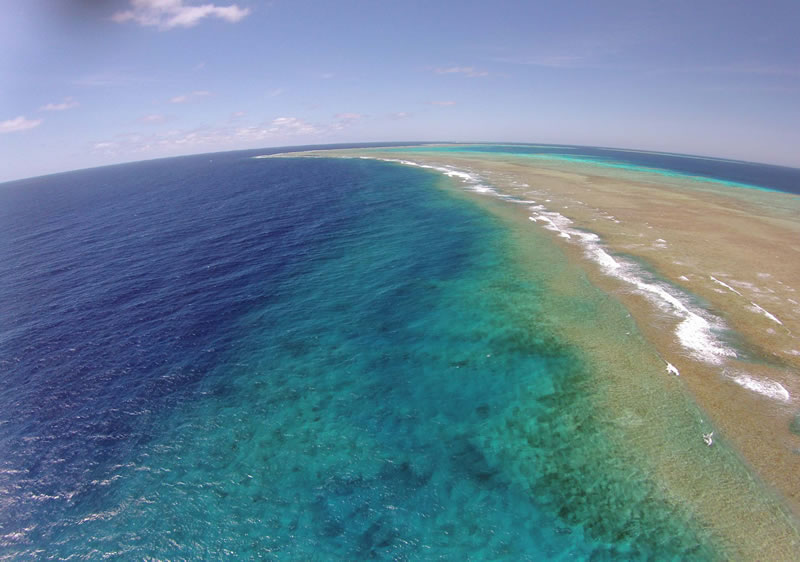
Aerial view of Ribbon Reef # 7 taken using a drone.
Today’s surveys were on Ribbon Reef #7, which is located within the green (no-take) zone. The high energy, open-ocean side of this reef had a shallow, wave-scoured reef crest, mostly bright pink with patches of turf algae and small corals, with a dense assemblage of robust, short-branched corals at its margin.
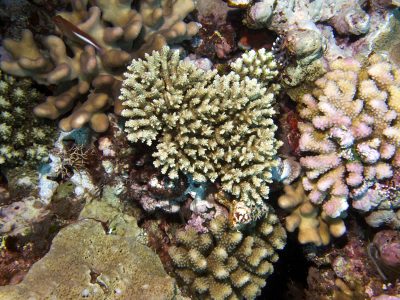
A photo of the typical diversity of branching and encrusting corals found on the fore reef.
Just below this, the reef plummets, near vertically, to about 30 m depth. The benthic community here was quite diverse and variable. The shallow part of the slope had a high cover of branching, massive, columnar and plating corals in some areas, patches with unusually large soft corals, and some areas where the bottom was covered in pink crustose coralline algae and had few corals. At the base of the slope there, were extensive accumulations of rubble, evidence of past storm damage. Below 30 m the slope was more gradual and the bottom was mostly sand and scattered boulders, with few corals.
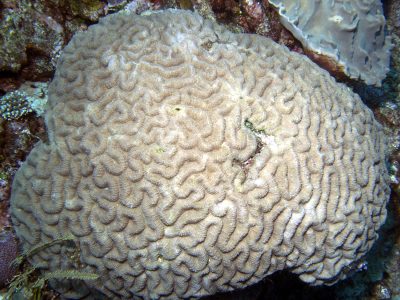
Large Symphyllia colony found on the fore reef slope.
The leeward side was quite different, with large coral bommies extending from a sandy seafloor (15-25 m depth) to the water’s surface. Some of the bommies were constructed of large boulder-like Porites colonies while others were carpeted in thickets of branching and bottlebrush Acroporids, soft corals, or large foliose corals. The deeper parts of the reef supported a diverse assemblage of corals, many of which formed colonies several meters in diameter and height.
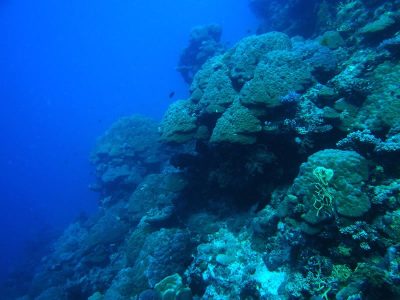
A coral bommies on the leeward reef constructed of massive Porites lobata colonies.
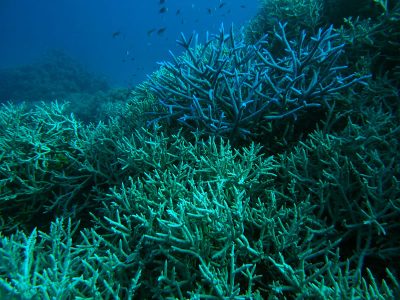
Large staghorn thickets (shown) and bottlebrush acroporids were found on some coral bommies.
Photos: 1- Will Robbins; 2,3 – Alex Dempsey; 4,5 – Andrew Bruckner


